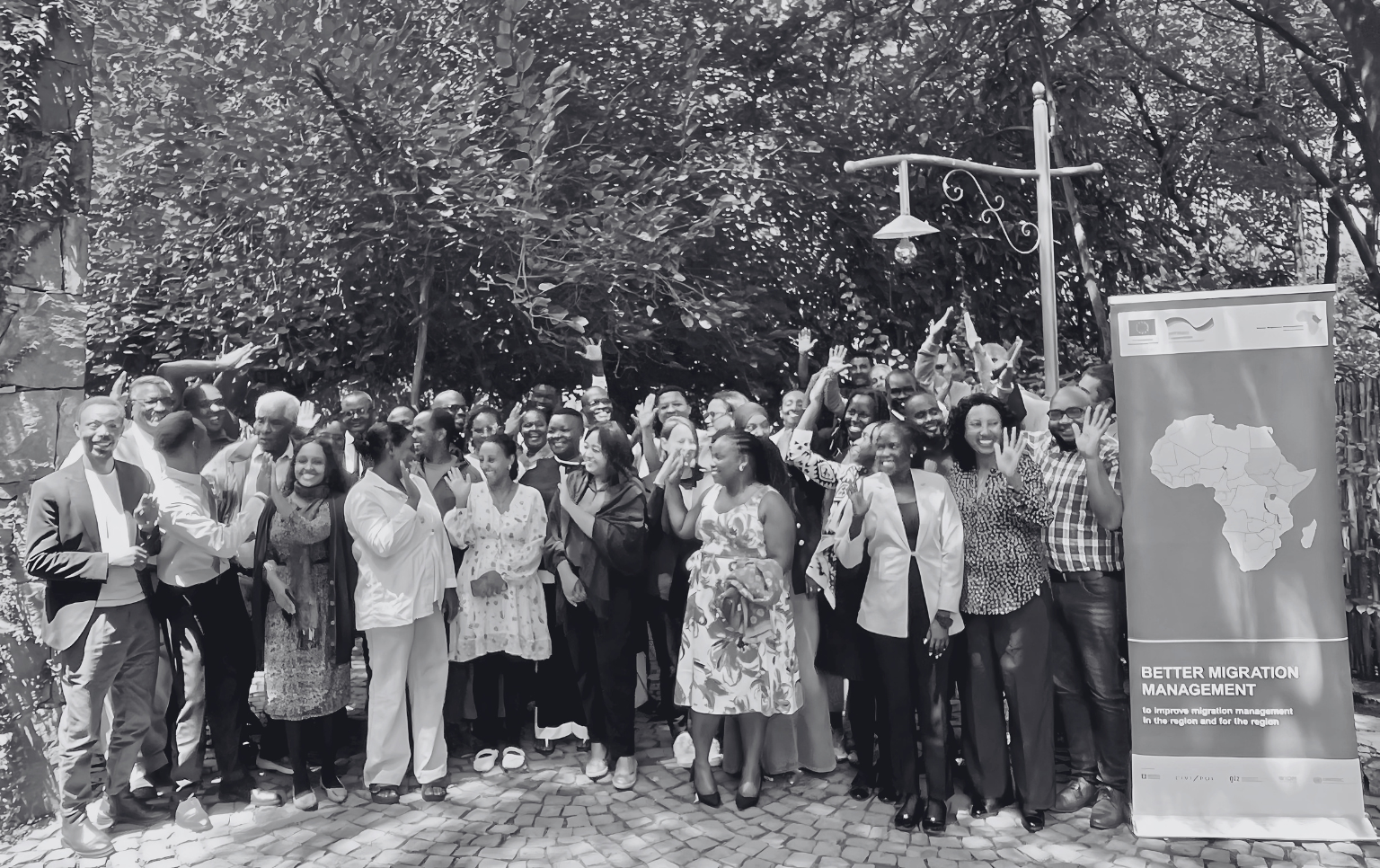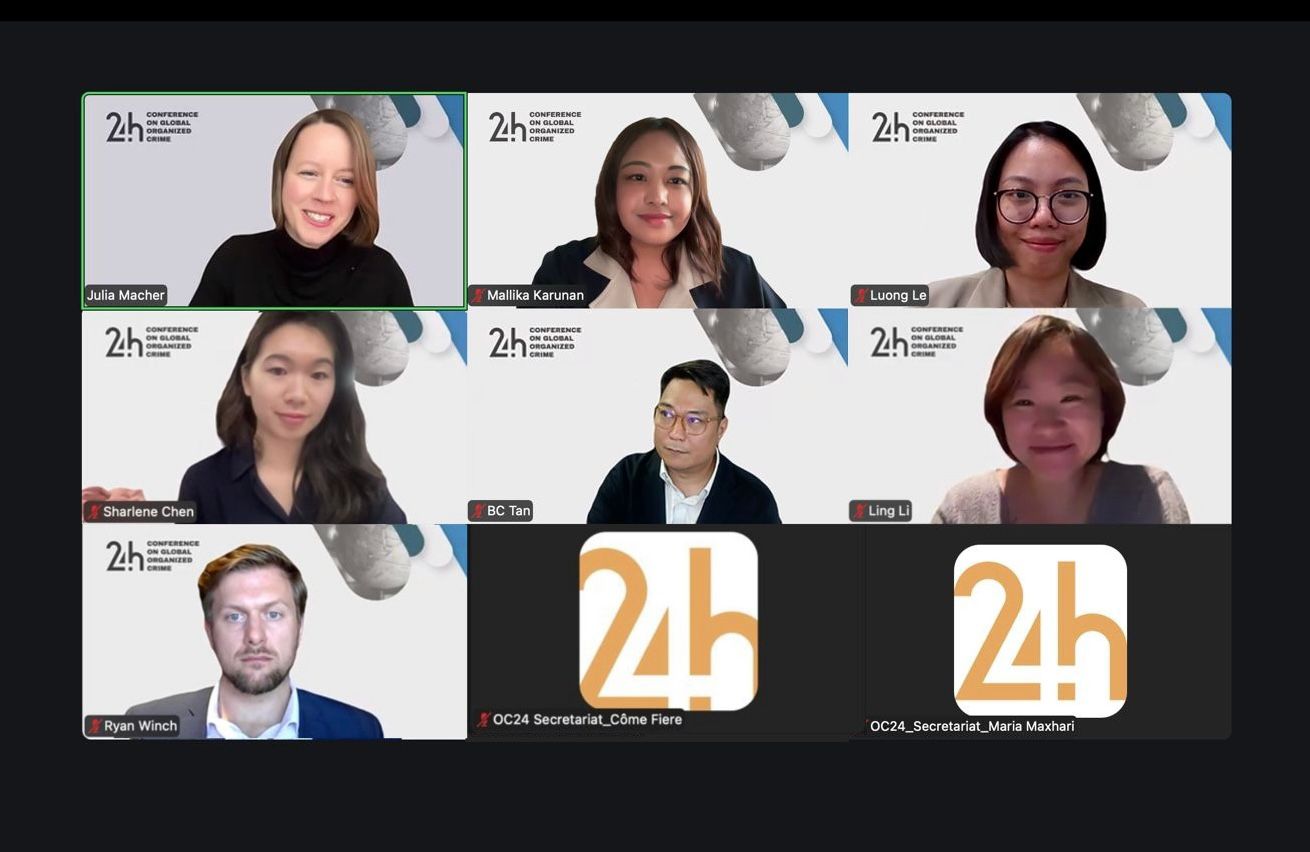East Africa’s annual Regional CSO Forum to Promote Safe and Fair Migration took place last month in Bishoftu, Ethiopia, with the aim of strengthening cooperation among organizations and enhancing efforts to protect victims of trafficking and vulnerable migrants.
Hosted by the Better Migration Management (BMM) Programme and supported by the Deutsche Gesellschaft für Internationale Zusammenarbeit (GIZ), the event brought together civil society organizations (CSOs) from the East and Horn of Africa Anti-Trafficking (EHAAT) Network, representing countries including Djibouti, Ethiopia, Kenya, Somalia, South Sudan, and Uganda.
Strengthening Collaboration and Sharing Insights
This year’s event provided an opportunity to reflect on the implementation of EHAAT’s three-year Sustainability Roadmap, which supports the group’s progress towards organizational independence. Discussions also focused on emerging trends and funding gaps and included the launch of the EHAAT website, the presentation of findings from the Regional Routes Mapping 2025 project, and reviews of the EHAAT Communication Strategy and Resources Mobilisation Strategy (RMS).
Crucially, the Forum also resulted in clear commitments and next steps, with EHAAT members translating shared learning into national-level action plans, joint advocacy strategies, and resource mobilization activities that will enhance both network-wide coordination and local-level impact.
To start the proceedings, CSO coalitions shared updates from the past year, while GIZ presented recent developments in its regional CSO support, including business training sessions which reached 262 participants in Ethiopia, Kenya, South Sudan, and Uganda. In a self-reported assessment, 75 per cent of participants who had a business reported they subsequently saw their income increase. BMM further implemented a three-day training on the inclusion of survivor voices in Ethiopia, Kenya, Somalia, South Sudan, and Uganda, and supported members in representing EHAAT at the Africa Regional Review for the implementation of the Global Compact for Migration in Addis Ababa.
Following this, Freedom Collaborative facilitated a session addressing trafficking for forced criminality, which included field insights on trafficking for online scamming in Southeast Asia. The presentation highlighted cases involving Ethiopian nationals, and covered the journeys of trafficked individuals, their experiences in compounds, and the process following rescue. Challenges related to repatriation were discussed, including high costs and the limited presence of embassies in Southeast Asia. Participants from Uganda and Ethiopia also shared their experiences of working with trafficking victims who had returned from scam compounds. The issue was further explored in a working group session, which led to EHAAT members agreeing to host monthly meetings to plan joint advocacy.
Trafficking from East African countries into Southeast Asian scamming compounds was also seen as an emerging trend in data collected as part of the Regional Routes Mapping 2025 project, which was facilitated by Freedom Collaborative and BMM with contributions from EHAAT members. In reviewing the project’s findings, participants discussed how the provision of legal services can improve case outcomes, yet many CSOs reported having only one staff member with legal training to support victims. To address this, BMM will explore the establishment of a regional peer group for lawyers and paralegals to share experiences and consult on cases. CSOs discussed other concrete applications of the mapping, including use of the data to support parliamentary advocacy (South Sudan), survivor-centered programming (Kenya), and national rollout events (Uganda).
Freedom Collaborative further led a session on the RMS, which was developed by regional CSOs and outlines EHAAT activities that require funding. Members discussed ideas for future fundraising initiatives and made plans for additional activities to measure impact and reach potential donors.
During the Forum, members were introduced to the newly created EHAAT website, which will enable them to more easily keep up to date with activities, access resources, and share information. The website features a public-facing section with information about the network, its mission and achievements, a blog with regular updates, and a members-only portal with internal resources and a document library, which Forum participants learned how to use. This platform also supports greater self-reliance and long-term sustainability by providing a central hub for coordination, documentation, and visibility.
Commitments for Action and Next Steps
Looking to the future, members discussed priorities for next steps and follow-up activities, including the development of a comprehensive Strategic Plan for the EHAAT Network and a webinar to address funding challenges and sources. EHAAT members were also invited to join Freedom Collaborative’s Trafficking for Forced Criminality Response Working Group, which brings together frontline organizations and relevant private sector actors.
The Forum’s thematic working groups also generated targeted commitments: a regional best-practices call on alternatives to migrant detention; a child trafficking awareness campaign; and gender-responsive interventions and storytelling informed by mapping data and survivor voices.



